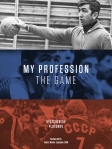Everybody (hopefully) knows that the most important concept in motor learning is specificity. That is, skills and techniques are learnt quicker and more effectively when the learning environment very closely replicates the conditions of the game. This is something that we have learnt over the years and many (good) coaches have adjusted their practices accordingly. Certainly since I was learning to play volleyball there has been a massive sea change. I can remember week long training camps where we maybe got a chance to play a game on the fifth (of five) day. The rest of time was spent diving, as I recall. Over things, under things, around things, with a run up, without a run up and always, always without a mat. I am (ok, was) very good at diving.
I have heard many coaches say that junior players today are not physically ready to play. They can’t handle the training loads of players in the past and need special weight training to get them ready to play. In earlier times players didn’t get the injuries they get now. It must be because kids are less active than they used to be.
Einstein was quoted as saying;
“The world we have created is a product of our thinking; it cannot be changed without changing our thinking.”
With that in mind we are obligated (only if we want to improve) to look at our problems from a different perspective. Consider the possibility that players become injured precisely because skill training is specific rather than despite. Consider the possibility that all of the silly, non-specific technical training we used to do was actually specific strength training.
By subtly changing our perspective, a few things possibly make more sense.
Read about the great new Vyacheslav Platonov coaching book here.


so we should bring back some of the old school stuff for specific strength training?
LikeLike
The major point of the post is about perspective and being prepared to look at a situation from a different point.
The minor point is that some ‘old school’ technical drills, especially defensive drills, could have positive conditioning effects even if they are ‘wrong’.
You should do what your team needs for it to get better 🙂
LikeLike
Advice From A Genius – Part two
You should do what your team needs for it to get better.
by Mark Lebedew
LikeLike
Doesn’t the principle of specificity apply to strength and conditioning too?
LikeLike
I’d like to quote Vern Gambetta:
“Specificity involves selecting specific exercises to elicit specific results….The work must have a specific purpose that relates to the sport. It also must relate to the position or event and be specific to the individual. This principle often causes confusion because it is misinterpreted as training only the movements of the sport or the sport itself. This narrow approach will not provide the athlete with the base of preparation and range of movements necessary to overload the system to stimulate continued adaptation.”
in: Athletic Development,
chapter: Strategies for Performance Training, Specificity
LikeLike
Thanks, Ronny, that’s a good quote.
The key is the overload. As Gambetta says, specific is the actual movements, but you can’t improve anything without overload.
The balance between specificity and overload is the key ‘art’ to coaching.
LikeLike
I played volleyball between `86 and `91, junior level in Romania. In the summer we used to have 2 training camps, one was dedicated to only physical training (3 practices/day) either at seaside or mountains with very harsh conditions regarding food and accommodation (no hot water for showers), we did not touch the ball at all in the first camp and the other one was dedicated to technical skills with very intense drills. In winter again, one camp for physical training.
Your post made me think that today, with 15 kg extra weight my only problem are the knees, and maybe that’s because of the strength I got during these years.
LikeLike